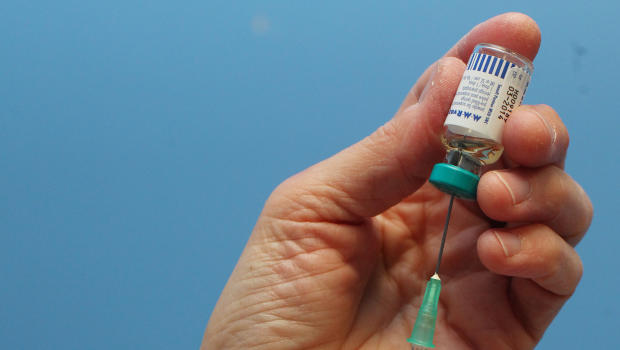
An 18-month-old boy in Berlin, Germany, died from measles Monday, and a school in a suburb of the German capital has been closed after a student there contracted the virus, local health authorities said. Germany is currently fighting a serious measles outbreak, including 447 confirmed cases of measles so far this year.
It was not clear how the toddler who died Monday had contracted the virus, according to Berlin Health Senator Mario Czaja. The high school, Carl-Zeiss-Schule, located south of Berlin and one of the city’s largest schools, was closed Monday but could potentially be closed for longer. One case of measles had been confirmed among the school’s 1,000 students, and so closing the school was a preventative measure, a spokeswoman for the Berlin Senate Administration for Education, Beate Stoffers, told the Local, a German news website.
“There is one pupil who is very sick with measles, but the school now has to ensure that the contagious period is over,” she said. In 2014, two other Berlin schools were closed because of measles. Historically, Germany has had low vaccination rates, particularly among those born between 1970 and 1990.
The U.S. is experiencing its own measles outbreak with at least 150 cases already confirmed in 2015, according to the Centers for Disease Control and Prevention. The Local reported that Germany’s current measles outbreak has been traced primarily to refugees from Serbia and Bosnia and Herzegovina, although at least two cases appeared to have come from the United States, according to authorities in Berlin. The last measles death in Germany was in 2013, when a teenage boy who had been infected as an infant died from complications related to the virus.
Measles is a highly contagious virus that can be transmitted from one person to another through coughing and sneezing. The germs can also survive on a surface for up to two hours after contamination, according to the CDC.
The resurgence of measles in the U.S., Germany, and many other developed nations is attributed to a small but growing number of parents refusing to vaccinate their children. German Health Minister Hermann Groehe criticized those opposed to vaccination, saying “the irrational scaremongering by some of those against vaccinations is irresponsible. Whoever denies their child a vaccination is not only putting their child at risk but also others, and this can lead to serious health problems.”
The German Health Ministry said they are stepping up vaccination checks and making more immunization services available for parents f young children. While they don’t have any plans yet to mandate vaccinations, some officials are calling for just that. The Berlin health minister, Mario Czaja, told the Guardian, “This case shows that measles is a very serious disease. I am in favor of mandatory vaccination.”
Though the vaccine is approximately 99 percent effective against measles, a recent anti-vaccination movement has falsely linked autism to the vaccines. Even though more than 107 independent research studies have disproven any supposed link, some parents are still refusing to allow their children to be immunized.
